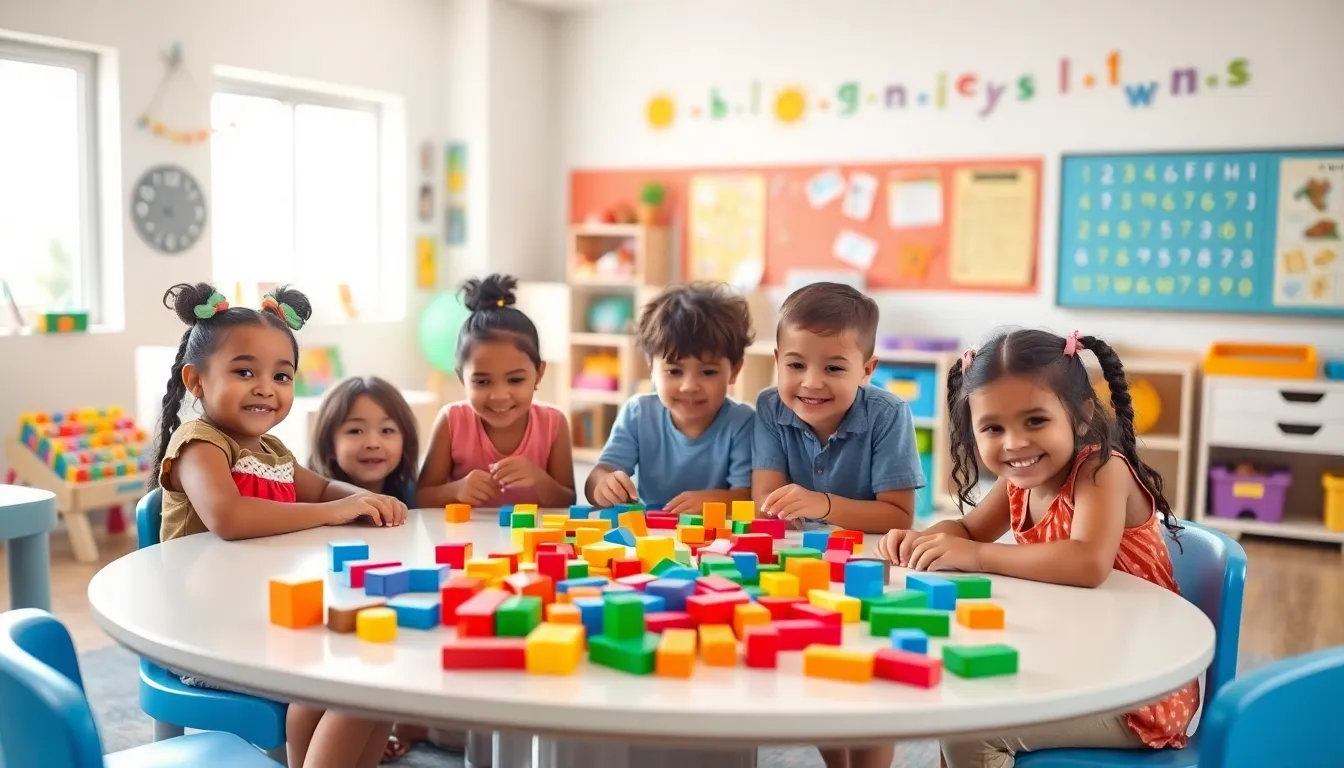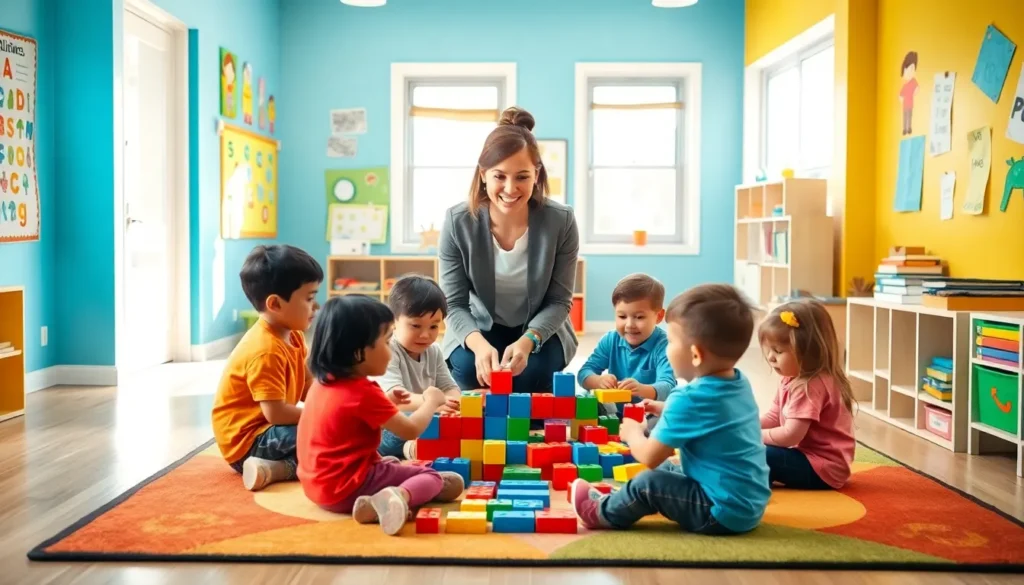Table of Contents
ToggleAre you ready to take that giant leap into the wondrous world of preschool? First Steps Preschool is more than just a catchy name: it’s a pivotal chapter in your child’s early education. Let’s face it: sending your little one off to preschool can feel like a rollercoaster ride. Excitement, anxiety, and a dash of joy all mingle together. This guide is designed to arm you with everything you need to ensure your child’s transition is smooth, educational, and above all, fun. So buckle up, because we’re about to dive deep into the essentials of choosing and enjoying your first preschool experience.
Understanding the Importance of Preschool

Preschool is not just a fun place for kids to play while you get a moment’s peace. It’s a fundamental stepping stone that lays the groundwork for lifelong learning. Studies show that quality preschool programs foster skills that children carry into later life stages. Children are introduced to a structured environment that is rich in opportunities for exploration and creativity.
At this crucial early age, children learn how to interact with peers, follow instructions, and discover their interests. Social skills developed in preschool can lead to better outcomes in elementary school and beyond. So, when a child runs to their first day at preschool, they’re not just stepping away from home: they are taking a giant leap toward a bright future.
Benefits of Enrolling Your Child in Preschool
The decision to enroll a child in preschool is rooted in numerous benefits. First and foremost, it prepares them academically. Research indicates that children who attend preschool tend to excel in reading and math, compared to their peers who don’t.
But that’s not all. Enrolling your child in preschool also gives them a head start in developing critical social skills. These young learners learn empathy, cooperation, and communication through structured play and group activities. The foundation of emotional intelligence is often laid at this age, enabling children to express their feelings and understand those of others.
Also, preschool offers exposure to diverse experiences that shape a well-rounded person. Whether it’s through arts, music, or outdoor activities, these facets of preschool instill a love for learning that lasts a lifetime.
Key Aspects to Look for in a Preschool
Choosing the right preschool involves careful consideration of several key aspects. Here’s what to keep an eye out for:
Developing Social Skills in Preschool
A good preschool fosters social interactions among children. Look for programs that encourage group activities where kids can collaborate and make friends. When peers play together, they learn the art of sharing, negotiating, and establishing boundaries.
Promoting Cognitive Development
Ensure the preschool offers a curriculum that stimulates cognitive growth. Activities involving problem-solving, critical thinking, and imaginative play are vital. Classes that provide engaging, challenging tasks can boost your child’s confidence and intellect.
Fostering Emotional Intelligence
Emotional intelligence is as crucial as academic success. A caring atmosphere allows children to express their feelings and develop resilience. Look for preschools with teachers trained to foster children’s emotional health.
Choosing the Right Curriculum for Your Child
Not all preschool curricula are created equal. Some emphasize play while others focus on structured learning. Research different approaches such as Montessori, Reggio Emilia, or traditional education to understand which aligns best with your child’s unique learning style.
Ask about the lesson plans and activities that will be offered. A curriculum should provide a balanced mix of academics and creative expression. The goal is to ensure your child is not just learning but also thriving, discovering the world, and enjoying each moment.
Preparing Your Child for Preschool
Preparation makes all the difference when your child is entering preschool. Here are some tips to get started:
Transitioning into a New Environment
Begin the transition process by visiting the preschool together. Familiarity breeds comfort, so it helps to explore the environment beforehand. This can alleviate anxiety and spark excitement.
Establishing Routines at Home
Creating routines at home will prepare your child for a structured preschool environment. Simple tasks like having a set time for breakfast and bedtime will help ease them into the scheduled activities they’ll experience at preschool.
Tips for Parents on the First Day
The first day of preschool can be filled with emotion, not just for children, but for parents too. Here are some handy tips to make the day go as smoothly as possible:
- Stay positive. Children often take cues from their parents. If you’re excited, they’ll likely feel the same.
- Keep goodbyes short. Prolonged farewells can lead to unnecessary anxiety. A quick hug and a cheerful “See you soon.” can do wonders.
- Bring a comfort item. A small toy or photo can serve as a transitional object, helping your child feel secure.
Building a Positive Relationship with Teachers
Establishing a strong partnership with your child’s teachers can significantly impact their preschool experience. Open communication is key. Don’t hesitate to ask questions or share concerns.
Regular check-ins with teachers can also offer insights into your child’s behavior and development. They can provide invaluable feedback about how your child is adjusting, socially and academically.




